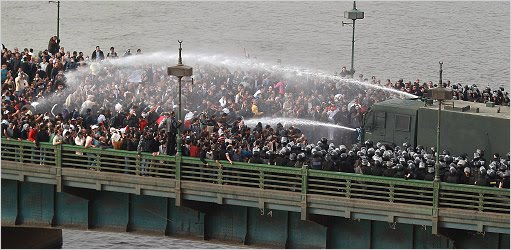Hearing the buzz surrounding the release of Mohamed Heneidy’s new film “Ramadan Mabrouk Aboul Alamein Hamouda, I presumed Egypt’s former number one comedian finally sought redemption or is at least trying to make up for the unfunny, tasteless atrocities he had released over the past couple of years (“Wesh Igram is one film that comes to mind).
The fact that Youssef Maaty – Adel Imam’s most frequent scriber and writer of last summer’s hit “Hassan and Morqous – penned the script automatically gave the film a much-need cachet.
Needless to say, I was wrong.
This realization only dawned on me in the second part of the movie, right after the mandatory intermission. Throughout the first part, I was busy laughing. Apparently, I had to make up for it with an unnecessary dose of confusion once the second part started.
The first part wasn’t exactly a cinematic masterpiece; it was full of the conventional plot holes, the familiar incoherence and Egyptian mainstream cinema’s favorite stereotypes. But it was hilarious, laugh-out-loud hilarious.
It seems that in the second part, the filmmakers realized they are actually making a film and the conventional recipe of commercial films was right there for them to follow: a cup of drama, one love interest, two teaspoonful of thickening plot, a slice of fake and misplaced conflict, more chopped up stereotypes marinated in political incorrectness, and, for the icing: a bit of a message to sprinkle on top. This of course is mixed in a bowl, stirred and cooked in less than a minute.
“Putting the mix in the oven for more than a minute might lead some confused viewers to assume this is a quality movie or that filmmakers were actually serious about making it, so keep it undercooked, the recipe reads.
Had it been a real recipe, I would have probably spent the Eid holiday at the hospital with food poisoning. Instead, these ingredients, cramped up in one half of the film, not only ruined those funny moments that marked the first part, but fostered the film’s identity as one more desperate stab at stardom that sacrifices the art of cinema for the sake of what some producers think is the commercial appeal.
Heneidy plays the title character, a teacher in a village school feared (or respected; the two words are synonymous in the film) by all the students and teachers. Even the principal fears the mighty teacher. Is it because he is known for upholding his convictions and idealistic principals or because he beats the kids? We are not sure, but beating is definitely a prominent factor.
In the city, the son of the minister of education (Ezzat Abou Ouf) is wrecking havoc at his uptown school. With a bunch of friends (all children of ministers or prominent businessmen), they do everything you never knew existed in upscale schools: car racing, motor bikes, squash, horseback riding, and all types of sports from basketball to swimming. Their parents are helpless and the teachers fear the mischievous teenagers.
In an attempt to expose his son to the real world, the education minister sends his son to the same school he went to as child – the same school Ramadan teaches in.
In no time, Ramadan is asked to go to the city to teach at the rich kids’ school. Only he of course could put the school, its teachers and its students back on the right track.
As expected, Ramadan – after leaving the comfort of rural life and his mother’s (Laila Taher) house – experiences a sort of a cultural shock as he explores the new school and faces the kids with powerful parents, who speak a type of English he can’t understand.
These kids, who are soaked in foreign culture and seem to only listen to foreign music, have one misplaced Arab obsession: a sultry singer called Naglaa (Serine Abdel Nour). They attend her concerts every night (we are not sure whether this is a night club, a hotel or what exactly it is that they frequent) and spend the night at her room/flat innocently chatting. No background is made available about this absurd relationship.
Their parents aren’t happy with this fetish, but are – in accordance with the stereotype – helpless. Thus, Ramadan is assigned to the hefty task of curing the kids from their obsession. And the stage is set for Ramadan and Naglaa to meet and maybe fall in love. Again, no background is made available as to the development of such a relationship into this direction, or any direction for that matter.
The film is so focused on the chief protagonist that it ignores developing other characters or explaining their actions that don’t correspond with their personalities. It’s too engrossed in producing “a comedy with a message, eventually sidestepping the development of the main character itself. Instead, the film jumps from one point to another, making the plot look like a jumbled scribbling.
It seems that the message was the saving grace of the film, or this was the plan anyway. To this very point, I’m not sure what the message the film tried to send is.
It’s education-related. That I know, but what is it trying to say exactly? Beating is the way to go? Does it have something to do with rural versus city life? I was lost, honestly. Suggestions are most welcome.
The film definitely tries to cash in on one of the most popular and most talked about issues of the year: education.
The real icing that was sprinkled on the top was the ending: rushed, incoherent and senseless; the perfect ending for a mediocre film. It’s like director Wael Ehsan looked at his watch, discovered the film has spilled over the specified duration and decided to end it in the remaining two minutes and seal it with a happy ending regardless of how absurd and abrupt it might be.
